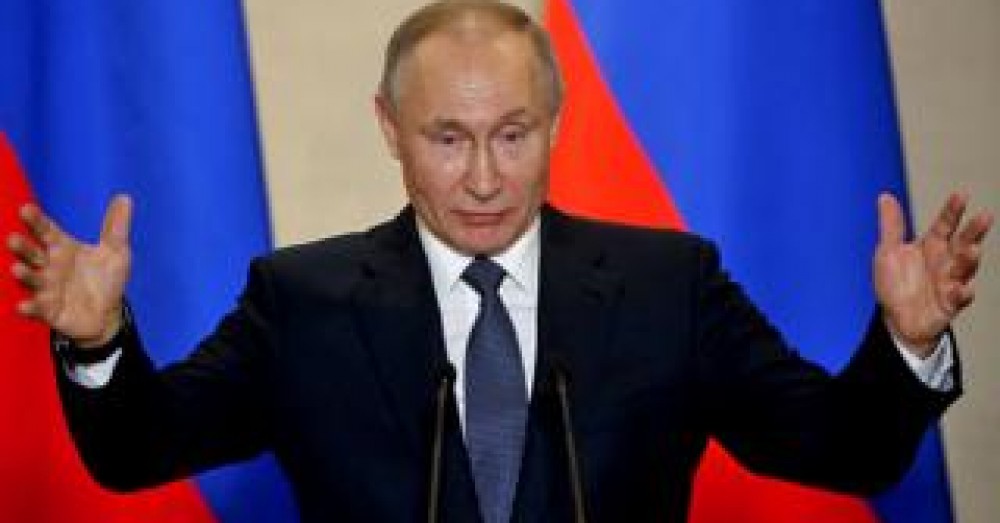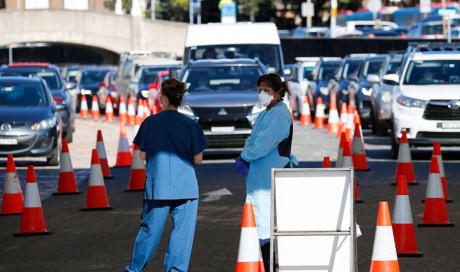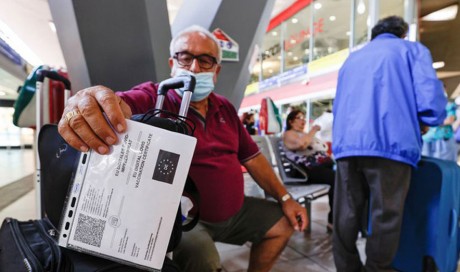The UK government "actively avoided" looking for Russian interference during the EU referendum, says a group of MPs.
The Intelligence and Security Committee's long-awaited report said the government was "playing catch-up", despite evidence of interference in the Scottish independence referendum.
Its report called for "immediate action" by government and intelligence agencies to tackle the threat.
The Russian Foreign Ministry called the report "Russophobia".
The UK government rejected the committee's call for a full assessment by intelligence agencies of potential Russian meddling in the 2016 referendum, saying it had "seen no evidence of successful interference".
And No 10 denied the claim it had "badly underestimated" the threat from Russia.
Foreign Secretary Dominic Raab tweeted: "We've been clear that Russia must desist from its attacks on the UK and our allies.
"We will be resolute in defending our country, our democracy and our values from such Hostile State."
The ISC's inquiry covers a number of topics, including disinformation campaigns, cyber tactics and Russian expatriates in the UK - saying the UK was a "top target" for the state.
But much of the "highly sensitive" detail will not be published due to fears Russia could use the evidence to threaten the UK.
Committee members also criticised No 10 for the delay in the report's publication - seven months after it was submitted to No 10 to sign off.
Downing Street was accused of holding back the report ahead of December's UK election and for delaying its nominations to set up the new committee - both claims it has denied.
But speaking at a press conference to launch the report, one of the ISC's committee members, Kevan Jones, criticised Boris Johnson for not signing it off sooner, saying there was "no reason for delay".
The ISC's former chair, Dominic Grieve - who pushed for the report to be published before the election - told BBC News his pleasure at seeing it come to light was "mitigated by a sense of frustration and bluntly anger at the way the government behaved".
Labour's shadow foreign secretary Lisa Nandy accused the PM of taking a "political decision" to block the report.
She added: "The government has underestimated the response required to Russia and it is imperative we learn the lessons from the mistakes that have been made."
The committee said Russian influence in the UK was now "the new normal" and the UK was "clearly a target" for disinformation campaigns around its elections.
But they said the issue was described as a "hot potato" - with no one organisation taking a lead to tackle it.
The report criticised intelligence agencies for not taking action during the EU referendum, despite there being "credible open source commentary" suggesting "influence campaigns" from the Russians during the Scottish independence referendum in 2014, and them later having looked into Russian activity in US elections.
"Had the relevant parts of the intelligence community conducted a similar threat assessment prior to the [EU] referendum, it is inconceivable that they would not have reached the same conclusion as to Russian intent, which might then have led them to take action to protect the process," it read.
ISC committee member Stewart Hosie also said no-one in Government wanted to touch the issue of Russian interference with a "10-foot pole" and no-one knew if Russia had tried to interfere with the 2016 EU referendum "because they did not want to know".
Mr Hosie told reporters: "There should have been an assessment of Russian interference in the EU referendum and there must now be one, and the public must be told the results of that assessment."
The report also said there had been "credible open source commentary" suggesting Russian tried to influence the Scottish independence referendum in 2014.
Committee member Mr Jones said the government had "let us down" by not looking into these accounts.
Analysis by Gordon Corera, BBC Security Correspondent
This report may not be what some expected, but it is still damning.
Many expected the committee to have answered the question of whether there was interference in political events like Brexit.
Instead, it says the problem was the government and the spy agencies failed to even look at this question.
British intelligence has, at least in recent years, been reluctant to get involved in anything that looks "political" and treated the issue of trying to protect democracy like a "hot potato".
But ultimately it's the government that the committee blames.
More broadly, there are serious questions about the failure of the UK to confront the spread of Russian money and influence over a long period.
And there is an urgent call for new legislation to deal with an ongoing challenge.
The report also accused successive governments of welcoming Russian oligarchs "with open arms" due to the investments they brought with them.
The committee said "few questions if any were asked about the provenance of this considerable wealth", with particular issues around the UK's investment visa scheme, the housing market, the judicial system and PR firms.
They said: "A lot of Russians with very close links to Putin who are well integrated into the UK business and social scene, are accepted because of their wealth."
The report said it had concerns about links between these wealthy Russians and the House of Lords.
"It is notable that a number of members of the House of Lords have business interests linked to Russia, or work directly for major Russian companies linked to the Russian state," it read.
"These relationships should be carefully scrutinised, given the potential for the Russian state to exploit them."
Share This Post















